IMPORTANT
Before emigrating, in addition to your immigration documents (confirmation of permanent residence, visa), identification documents (passport, driver’s license), birth certificate, marriage certificate, and medical records (vaccination booklet), gather the documents that will attest to your education and work experience (diplomas, transcripts, letters of reference, employment contracts)
All documents must be originals, but make sure you also have photocopies in case you lose the originals.
Keep photocopies separate from original documents.
If your documents are not in English or French, you should also bring certified translations in one of these two languages.
Once in Nova Scotia you can also contact the ISANS translation service of the Immigration Services Association of Nova Scotia.
Preparing for the Job Search
Before coming to Canada, you can use online pre-arrival settlement services (SOPA, or Settlement Online Pre-Arrival), a program financed by Immigration, Refugees and Citizenship Canada (IRCC) that provides free pre-arrival services for job preparation, success, and retention.
You can also contact Immigration Francophone Nouvelle-Écosse’s pre-arrival service, which provides employment assistance services.
If, before coming to Canada, you were working in a profession you would like to pursue in Canada, it is important to know that around 20% of jobs are either regulated professions or skilled trades.
These professions are governed by provincial, territorial, and sometimes federal legislation, and administered by regulatory bodies.
They aim to protect public health and safety by ensuring that professionals meet strict standards of practice and competence.
Types of regulated professions
- Exclusive professions
These professions allow their members to engage exclusively in certain activities defined by law. Only members of a professional association can practise these activities and use the reserved title. - Professions with a reserved title
In this case, use of the title is protected by law. A non-member may practise the profession but may not use the associated title or imply that they belong to the professional body.
To find out whether your diplomas (academic qualifications) will be recognized in Canada, check whether your profession is regulated (https://www.cicdi.ca/934/search_the_directory_of_occupational_profiles.canada).
If this is the case, contact the body tasked with recognizing your academic qualifications.
The accreditation process can be lengthy, since it serves to verify that your skills and qualifications match those required in Canada to practise your profession (comparison of curricula, course outlines, evaluation of transcripts, etc.). It may therefore be advisable to find temporary employment during the process.
Upon completion of the assessment, you will know if you:
- need to upgrade your skills or studies to be able to practise your profession. There are several solutions for this. To learn more, you can consult:
- the Government of Canada https://www.canada.ca/en/services/jobs/training/initiatives/skills-success.html
- Employment Nova Scotia, Skills Development program https://www.novascotia.ca/employmentnovascotia/programs/skills-development.asp
- You should consider finding another job (with lower requirements) in your field, which will allow you to use your knowledge, familiarize yourself with the jargon of your profession in Canada, gain Canadian work experience, and create a network.
- You should consider finding another job in a different field (see job catalogues) or becoming self-employed.
Non-regulated professions
Non-regulated professions do not require licenses, certificates, or registration to practise them. However, certain specific qualifications may be required by employers or recommended for access to the job market.
Preparing your Resume and Cover Letter
In Nova Scotia, several provincial organizations provide services to help immigrants prepare their resume and cover letter:
Employment Nova Scotia
The Employment Nova Scotia office in Sydney provides a range of services for job seekers, including resume and cover letter writing to help prepare your professional documents and adapt them to Canadian standards.
It also provides career planning advice, training and skills development, labour market information, and job search assistance.
Nova Scotia Works Centre (bilingual services)
Address: 1030 Upper Prince St., Sydney, Nova Scotia.
Telephone: 1-877-223-0888 Call to make an appointment before you go.
Immigrant Services Association of Nova Scotia (ISANS)
ISANS offers resume and cover letter writing workshops:
- to teach you how to adapt professional documents to Canadian standards,
- to optimize resumes by emphasizing skills relevant to the local market,
- to help create professional resumes and understand the expectations of Canadian employers.
They offer workshops to help newcomers prepare effectively for interviews and provide personalized support.
Email: [email protected]
Telephone: 902-423-3607
Facebook: https://www.facebook.com/isans.ca
Nova Scotia Works will help you create a new resume or cover letter online in a few simple steps or use a template to customize them. https://novascotiaworks.ca/nsdc/resumes-and-documents
Conseil de développement économique de la Nouvelle-Écosse (CDÉNÉ)
CDÉNÉ helps French-speaking immigrants with employment advice, workshops on job search strategies, and networking with professionals. They also provide support for the recognition of foreign academic qualifications.
Telephone:902-769-3284
Email: [email protected]
Facebook: https://www.facebook.com/CDENEemploi
Immigration Francophone Nouvelle-Écosse (IFNÉ)
IFNÉ offers pre- and post-arrival services, including employment assistance and orientation sessions. They also support Francophone immigrants in their professional integration.
Address: 6960 Mumford Rd., Office 2085, Halifax, NS, Canada
Telephone: 902-433-2099
Email: [email protected]
Facebook: https://www.facebook.com/ImmigrationFrancophoneNE
Applying for a Job
To apply for a job, you can send your application unsolicited to companies that you find interesting. For the Chéticamp region, you will find the list of the region’s companies here.
You can also:
- contact the local office of Nova Scotia Works to consult the list of the region’s companies that are hiring.
Brenda LeBlanc
12521 Cabot Trail Rd.,
Saint-Joseph-du-Moine NS B0E 3A0
Office telephone: 902-224-2774
Cell phone: 902-224-0120
[email protected] - You can view job offers in the region in the following catalogues:
- Job Bank
https://www.jobbank.gc.ca/jobsearch/jobsearch?mid=50743 - Nova Scotia Works
https://novascotiaworks.ca/nsdc/job-search?location[locality]=Ch%C3%A9ticamp&location[region]=NS - Indeed
https://ca.indeed.com/jobs?l=Ch%C3%A9ticamp%2C+NS&radius=35&vjk=9893e5b099d5f7cb - Career Beacon https://www.careerbeacon.com/en/search/jobs-in-Cheticamp_Nova-Scotia
- Job Bank

